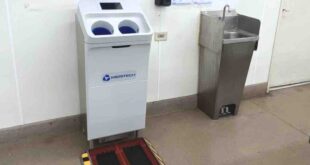Greater understanding and use of modelling and simulation could help the food and drinks industry reduce the cost of producing food and lower the carbon footprint of the sector, according to a new report published by the Institution of Mechanical Engineers (IMechE).
Simulation can increase the understanding of complex problems in the food and drink industry, which allows for innovative solutions to be designed, and productivity and quality improvements to be made. Simulation is an extremely useful tool to tackle prominent challenges facing the industry, such as climate change and evolving consumer trends.
Organisations can significantly reduce their carbon footprint by using virtual tools as opposed to using physical materials and assets. This also leads to optimised manufacturing and process routes with less material and energy waste. Simulations can also help to accelerate new product and process development.
The report puts forward comprehensive recommendations on building scientific communities, open-access initiatives, training, and best practice guides.
Professor Maria Charalambides CEng FIMechE, Professor in Mechanics of Materials in the Department of Mechanical Engineering at Imperial College London, said: “Foods are highly complex biomaterials. Their optimum production demands scientific knowhow which can be unlocked through modelling and simulation of the process, in tandem as always with experimental studies for defining the material and physical materials of the food or drink. Efforts towards digitisation of the food industry have already started and various research groups around the world have embarked on this exciting journey of food and drink engineering modelling. The know-how we will acquire through this new avenue, will change the food industry which strives to transition towards more sustainable ingredients, lower carbon emissions, circular economy as well as healthier and more pleasurable food and drink products, accessible to humans of all backgrounds. Improved health through nutrition will have immense positive implications on the UK’s Health and the Economy.”
Dr Ian Noble, Vice President – R&D, Research & Analytical Sciences, Mondelēz International, said: “The digital transformation of the Food & Drink sector will see tremendous growth in the use of in-silica development tools including modelling and simulation, moving us to a new generation of R&D. Transforming the pace and ambition of our R&D work to create value through productivity gains, supply chain resilience, faster innovation and accelerate our journey to Net Zero. I am encouraged to see the thought leadership in this space and look forward to seeing the proposed initiatives and recommendations in this report being brought to life.”
Read the report HERE.
 Engineer News Network The ultimate online news and information resource for today’s engineer
Engineer News Network The ultimate online news and information resource for today’s engineer



